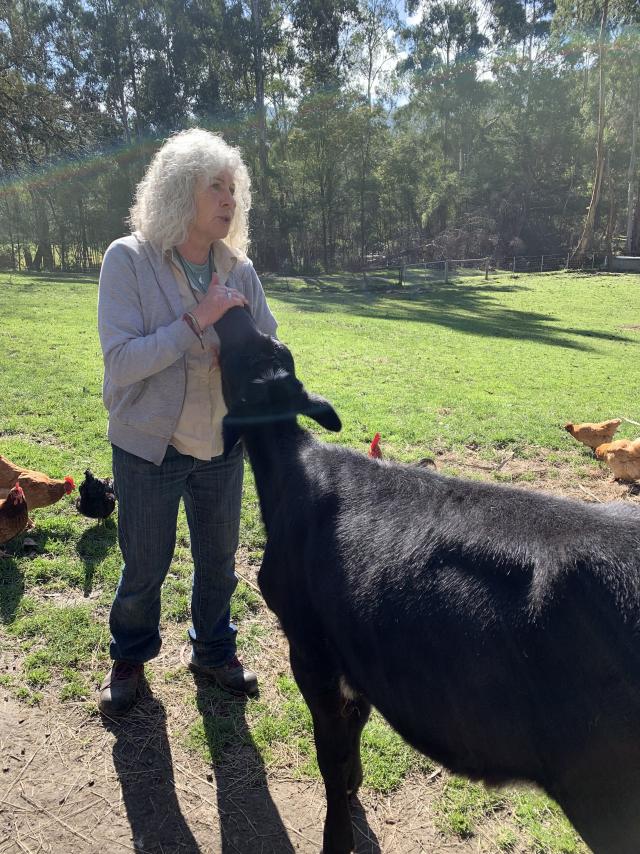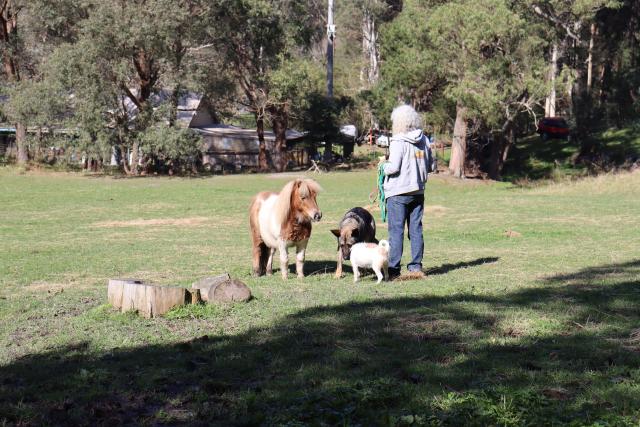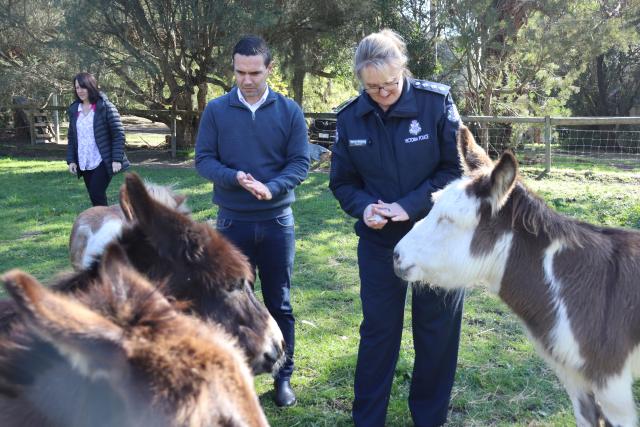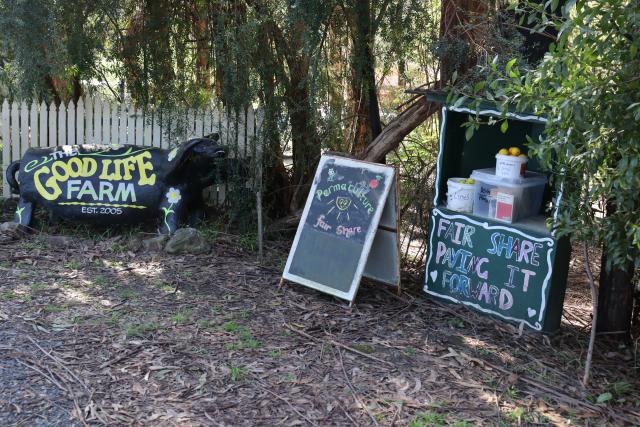
By Mikayla van Loon
For young people who find themselves disengaged from school, struggling with their mental health or on a path to committing crimes, sometimes it can feel like there’s no way out.
But that’s why a local Chum Creek woman began The Good Life Farm 18 years ago, to give these young people a chance to get back on the right path.
Founder and CEO Lesley Porter and her team of social workers, counsellors and mental health practitioners offer a therapeutic program, mainly focused around animal therapy and structure.
“It’s Animal Assisted Learning and it’s life, social skills and an environmental program based on permaculture,” she said.
“My love of permaculture is the core values which are Earth care, people care, and fair share.”
In a tour of The Farm on Tuesday 15 August, members of Victoria Police and Casey MP Aaron Violi heard and learned about the impact it is having on local youth, as well as those who travel distances.
“Local police and VicPol are very supportive of any youth initiatives that are going to keep our youth out of trouble,” Healesville Police Sergeant Kirsty Swankie said.
Ms Porter said since the end of the pandemic “we do have a lot of school refusals” and a lot of young people are being homeschooled because of bullying, anxiety or entitlement.
Over 10 weeks, seven to 17 year olds from all over the outer east attend one day a week, with no access to mobile phones to ensure they are focused and are provided with a healthy meal.
“A lot of the young people nowadays don’t eat very healthily. So we are just trying to introduce good food as much as we can and carbs so they’ve got the energy to do the work throughout the day,” Ms Porter said.
A successful outcome for these young people is not rooted in setting life long goals, it is more about the ability to overcome personal challenges and find self belief.
“It really is about reengagement. So some kids will either go back to school, or go back and do a certificate but it’s about reengagement in some activity and from then on, we don’t know,” Ms Porter said.
“It’s enhanced social skills, it’s a much improved sense of self worth. It’s those sorts of things that are the critical building blocks,” board chair Frank Dixon said.
Having recently had an external evaluation done on the benefits and outcomes of The Farm, it was found to improve mental and emotional health; improve peer functioning; improve sensory functions; and reduce negative, damaging or harmful behaviours.
The report also found that the most effective time period for a young person to attend was over two terms.
“Over two terms will make the most impact. Anything after that is based on social skills,” Ms Porter said.
“Young people who do come after that, it’s usually because they’re not attending anything and The Farm really is just an anchor and they have made friends and that’s what you want to continue.
“But that depends on the funding. It depends on the needs of the young people.”
Working on the values of respect, care and connection, not only for people but nature too, Ms Porter said learning the basics of animal instincts was an important part of teaching the young people those values.
“We have really quite firm boundaries and we use those boundaries with the animals. So ‘that’s a really large cow. If you’re going to go out to that cow, this is the way you handle it and work with it’. And if they don’t listen, then they’re going to get hurt,” she said.
While never putting a young person at risk or in danger of getting seriously hurt because they are always accompanied by an adult, Ms Porter said listening was the foundational starting point of building trust to work with the animals.
Having always worked with children at pony clubs and little athletics, as well as coming from a somewhat traumatic background of her own, Ms Porter uses that to reassure the young people they are not alone.
“What changed my life was moving when I was 11 and I started working at a riding school and holiday farm and in those days in the ‘70s, you stayed there.
“All the kids that went there were actually in boarding schools, they had no parents. I had no parents either and it just changed my life and from that experience I thought one day I’m going to duplicate what that was.
“From every negative thing we have happen in our lives, there is a strength that you will gain from it.”
Empowering these young people with resilience to know that when something ruptures, they are able to repair it, means even if they graduate from the program and find themselves in a spot of trouble, they will always be supported by The Farm.
“The other thing about The Farm is the doors are never shut. So if they’re 20 or 30, I still get kids, not heaps, ring me and say can I come up or can I have a reference.
“The door is always open and I don’t think over the 18 years I’ve had one child that’s never been allowed to come back.”










